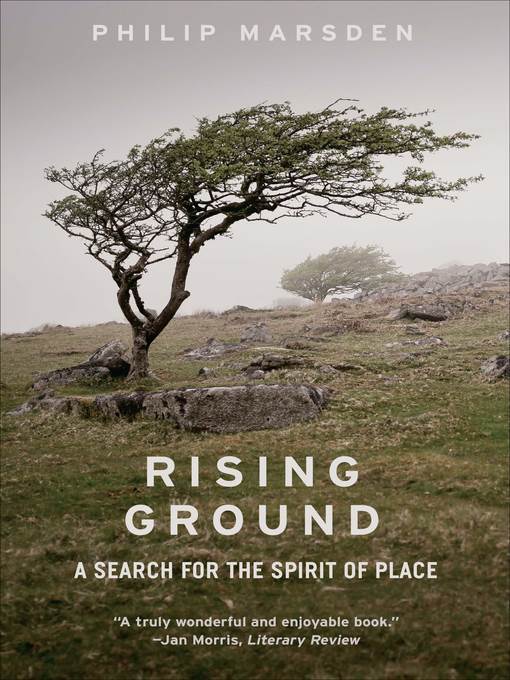
Rising Ground
A Search for the Spirit of Place
- اطلاعات
- نقد و بررسی
- دیدگاه کاربران
نقد و بررسی

February 15, 2016
Travel writer Marsden (The Levelling Sea) whose previous works chronicled trips to Russia, Armenia, and Ethiopia, returns home to walk the length of the Cornwall region, a peninsula located in the southwest corner of Great Britain. Marsden employs an array of disciplines and devices to capture both the ruggedness and beauty of the landscape and more challengingly, to successfully convey a sense of the land's ephemeral "spirit," imbued in the moors and hills by its unique geography and history. Walking east to west, metaphorically through time, and concluding at the aptly named Land's End, Marsden explores and offers commentary on the mysterious manmade arrangements of stones dotting the landscape, dating from the Neolithic era; places where Arthurian legends hover over the land; regions where talk of druids still endures; and the environmental degradation left by the industrial extraction of clay from the land. Alongside Marsden's ruminations on landscape, there is a smaller parallel narrative that describes making repairs to his recently purchased ramshackle Cornish home and acts as a subtle addition to the philosophical speculations on the power of place. Marsden is erudite and brings his knowledge of geology, etymology, history, and philosophy, as well as the voices of Cornwall's past and current inhabitants, to his long peregrination. The writing is seamless and occasionally stretches to the elegant.

February 1, 2016
In 2010, Marsden (The Crossing Place) moved his family into a ramshackle farmhouse in Cornwall, England, on a remote piece of land tucked within fields of barley and oak-lined creeks. After years of vacancy, this mid-19th-century farmhouse has seen better days. As Marsden hacks away at the brambles creeping through the cracks in the walls and observes the century's worth of wear on the slate flagstones, he contemplates not only the land's long history but also the farmhouse's many inhabitants and their connection to the environment. The more Marsden traverses the surrounding landscape, he becomes engrossed in the relationship between humans and place, and his research on Cornish history starts to embody a character of its own. Marsden forms poetic descriptions that pay tribute to the Cornish land and this human link of mythology and sanctity. VERDICT Anglophiles will be captivated by this beautifully written book, as will those with an interest in an illustrative history.--Melissa Keegan, Ela Area P.L., Lake Zurich, IL
Copyright 2016 Library Journal, LLC Used with permission.

January 1, 2016
A native of Cornwall, England, returns with an account of a walk southwestward across the region to Land's End. A genial companion throughout, Marsden (The Levelling Sea: The Story of a Cornish Haven in the Age of Sail, 2011, etc.) focuses each section on a specific place and blends together stories about his travels there (in all kinds of weather) with summaries of encounters with locals, inns where he stayed (when he's not camping), speculations about the ancient remains he visited, and information about notables of various sorts--artists, historians, writers--who worked in the area. A few of those names will be familiar to most (Dickens, Tennyson) but others, only to students of the region. Among the latter--Jack Clemo, who wrote about a chapel; Charles Henderson, who as a child began his researches into Cornish churches; and Peter Lanyon, whose paintings Marsden admires. The author offers only a little about his family life, but he does go into considerable detail about the remote farmhouse he and his wife purchased and restored. He focuses almost entirely on his walk and leaves readers to imagine what his wife and children are up to. Marsden also alludes occasionally to his travels elsewhere, including Armenia, the subject of an earlier work, The Crossing Place: Journey Among the Armenians (1993). Throughout his journey, the questions he asks are clear: What am I seeing? What used to be here? What does it mean? Sometimes, the author is content, as with stone circles, to shrug: "The truth about circles is that you can make of them what you will." Each chapter/section is fairly brief, and Marsden sometimes overreaches for an effective or evocative concluding sentence--but not often. The writer/traveler blends so thoroughly with the landscape that it's sometimes affectingly uncertain which is speaking.
COPYRIGHT(2016) Kirkus Reviews, ALL RIGHTS RESERVED.




دیدگاه کاربران